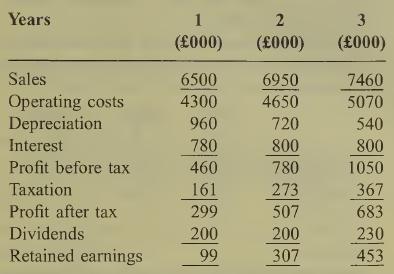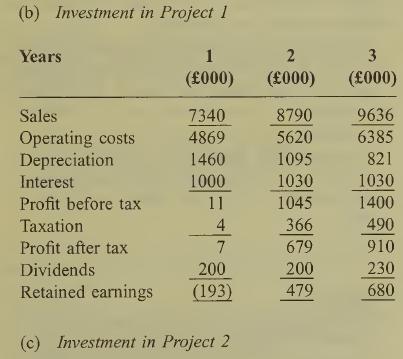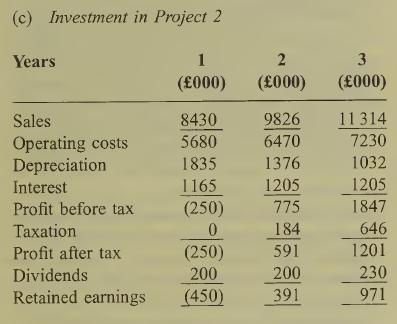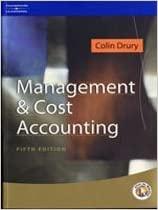Advanced: Relevant cash flows and taxation plus unequal lives Pavgrange pic is considering expanding its opera tions.
Question:
Advanced: Relevant cash flows and taxation plus unequal lives Pavgrange pic is considering expanding its opera¬ tions. The company accountant has produced pro forma profit and loss accounts for the next three years assuming that:
(a) The company undertakes no new investment.
(b) The company invests in Project 1.
(c) The company invests in Project 2.
Both projects have expected lives of three years, and the projects are mutually exclusive. The pro forma accounts are shown below:
(a)No new investment


The initial outlay for Project 1 is £2 million and for Project 2 £3^ million.
Tax allowable depreciation is at the rate of 25% on a reducing balance basis. The company does not expect to acquire or dispose of any fixed assets during the next three years other than in connection with Projects 1 or 2. Any investment in Project 1 or 2 would commence at the start of the company’s next financial year.
The expected salvage value associated with the investments at the end of three years is £750000 for Project 1, and £1 500 000 for Project 2.
Corporate taxes are levied at the rate of 35% and are payable one year in arrears.
Pavgrange would finance either investment with a three year term loan at a gross interest payment of 11% per year. The company’s weighted average cost of capital is estimated to be 8% per annum.
Required:
(a) Advise the company which project (if either) it should undertake. Give the reasons for your choice and support it with calculations.
(12 marks)
(b) What further information might be helpful to the company accountant in the evaluation of these investments? (3 marks)
(c) If Project 1 had been for four years duration rather than three years, and the new net cash flows of the project (after tax and allowing for the scrap value) for years four and five were £77 000 and (£188 000) respectively, evaluate whether your advice to Pavgrange would change. (5 marks)
(d) Explain why the payback period and the internal rate of return might not lead to the correct decision when appraising mutually exclusive capital investments. (5 marks)
(Total 25 marks)
ACCA Level 3 Financial Management
Step by Step Answer:






